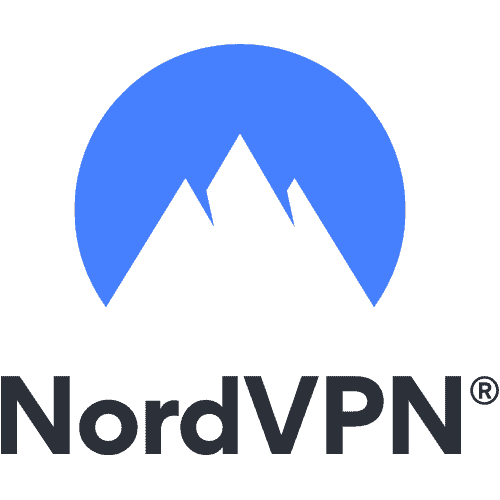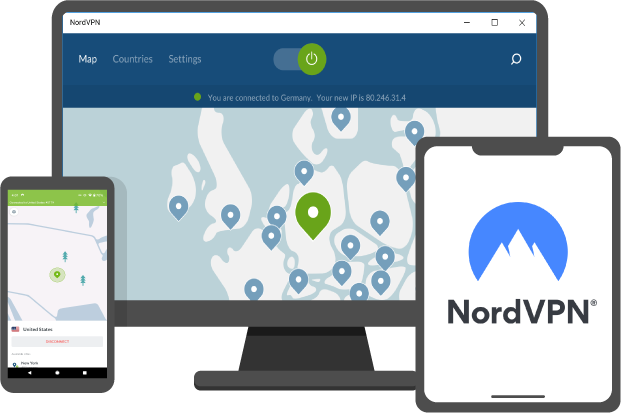We forecast our global VPN hardware requirements will reach 500+ million devices in 2022.
With the limited IPv4 address space and the mass adoption of mobile platforms and cloud computing, these figures can rise dramatically as more people use VPNs to gain cyber security and anonymity.
In the VPN market, technology experts have increasingly used VPNs, and this development has recently been driven by ISPs selling browsing histories worldwide.
With VPNs, users can closely protect their online privacy and access other benefits like better security when using public internet networks.
Every year the requirements for VPN hardware go up and up. If you are shopping for a VPN router or just wondering what your needs will be in 2022, then read on.
Choosing the right hardware VPN depends heavily on your requirements and use case. This blog will help you identify some of the best VPNs for your needs.
What is OpenVPN?
OpenVPN is a free, open-source protocol especially developed to create highly secure virtual private network connections.
Currently, it is one of the most well-liked VPN protocols among VPN users. OpenVPN was programmed by James Yonan and released in 2001.
Like other security protocols, OpenVPN is a standalone tunneling protocol even though you can enjoy the greatest security and benefit from the features of a virtual private network with a quality vendor.
It has built a robust reputation for being the strongest encryption protocol for many valid reasons.
These include the data that it uses pre-shared keys, authentication, certification, IPv6 support, OpenSSL encryption, and it can adapt UDP and TCP to bypass the strictest firewalls and DPI.
How Does OpenVPN Work?
OpenVPN works by using the TCP or UDP protocols to create a secure connection between two endpoints – similar to how your Internet browser uses TCP/IP to connect to a site.
It is better than the default Remote Desktop Protocol because it allows you to tunnel through firewalls and proxies and uses multi-threading for robust performance.
OpenVPN allows peers to verify each other using certificates, a pre-shared secret key, or username/password.
When used in a multi-client server configuration, it will enable the server to release an authentication key for every client, using signature and Certificate authority.
It uses the OpenSSL encryption library broadly, as well as the SSLv3/TLSv1 protocol, and contains many security and control features.
OpenVPN also uses a custom security protocol[6] that uses SSL/TLS for key exchange. It can traverse network address translators (NATs) and firewalls.
OpenVPN Hardware Requirements
The essential thing is to buy hardware strong enough to handle your internet connection without hiccups. One of the most crucial hardware components for VPN is the CPU.
OpenVPN heavily depends on the CPU for decryption or encryption of internet traffic. Other components such as network interfaces, memory, or disk are far less critical.
Here is a list for selecting OpenVPN hardware:
| List | Requirements |
|---|---|
| CPU Support | Your CPU must support AES-NI. OpenVPN protocol is unable to use multi-core CPUs. Make sure the single-thread performance of your CPU is powerful to encrypt or decrypt your online traffic in real-time. |
| Memory | You must have 1GB minimum memory for the number of connections you need to maintain. |
| Hard Disk Space | OpenVPN does not need much space. 4GB should be enough for the logs and system. If you intend to keep records for the long term, you may consider a big hard disk. |
OpenVPN Server Requirements
The OpenVPN server is offered as a virtual machine disk image formatted for use with VMware’s vSphere Hypervisor, also known as ESXi. VMware vSphere Hypervisor is free software for running a virtual machine on an app server.
Virtual Machine Hypervisor Requirements
The following resources are required to run a virtual machine where OpenVPN runs:
- 4 GB RAM.
- 20 GB hard drive space.
- Minimum one 64-bit processor core that includes Intel VY-X or AMD RVI support.
VMware specs are usually sized for big-scale production environments where hardware will support various virtual machines.
Network Requirements
- Routing in the network default gateway to the VPN phone subnet.
- The Wave Server and the OpenVPN server should be on the same subnet.
- Public IP port-forwarded to OpenVPN server, using Port 1194 UDP.
Why might I need an OpenVPN server?
Having a personal OpenVPN server is important for maintaining your privacy and security online. Whenever you use a public wifi network, you have no idea where your data may be routed.
When you create your own server, the network you connect to will only see the internet connection established between your PC and your OpenVPN server.
This internet connection is encrypted, and the local network would not know what websites you are accessing.
Even when you are connected to your local internet service provider, you cannot be certain what online data your ISP may release to third parties.
By using a virtual private network, you can be assured that your online data is secure.
Which router Operating System should you use for OpenVPN?
| Tech | Operating Systems |
|---|---|
| Linux-based | OpenWRT, IPFire |
| BSD-based | pfSense, OPNsense, etc |
All of these systems work perfectly with OpenVPN. OPNsense and pfSense are easier to set up and manage. OpenWRT is a bit harder to set up, but it is about 40% more performant. TechNinjaPro recommends pfSense and OpenWRT.
OpenVPN Hardware Appliances
- APU2Do: Entry-Level OpenVPN box
- C4 OpenVPN router
- TLSense i7: the Gigabit OpenVPN router
Is OpenVPN Secure to Use?
Yes, OpenVPN is secure to use.
OpenVPN is a secure protocol for accessing the Internet, and it’s also highly configurable.
This means that you can choose how much privacy you want, how many servers you want to connect to, and how fast your connection will be. You can even choose whether or not you want to hide your IP address.
So, how secure is OpenVPN?
It’s not just secure, but there’s no better security method available right now.
The only downside to OpenVPN is that it can be slower than other protocols because it uses advanced encryption methods. However, if you want security and privacy, OpenVPN is the way to go.
What is Better than OpenVPN?
PPTP, SSTP, and SSH are the perfect options if OpenVPN is not supported by your PC or phone. L2TP/IPSec is another excellent option if OpenVPN is not supported and security is your top priority.
OpenVPN is the recommended protocol for desktops including Windows, Linux, and Mac OS X.
SSTP is a secure tunneling protocol that allows you to connect to servers using SSL/TLS and Microsoft’s Point-to-Point Tunneling Protocol. It’s easy to set up, and it requires very little configuration.
SSH tunnels are another good option if you’re looking for something that is secure but also simple and easy to use. They’re also useful for accessing remote networks over encrypted connections.
Is PPTP or OpenVPN Better?
PPTP has faster speed and is simple to set up but provides a poorly secured internet connection.
On the other hand, OpenVPN offers excellent speed and powerful security, plus it is great at circumventing geo-restrictions and firewalls undetected.
Is WireGuard Better than OpenVPN?
OpenVPN and WireGuard are both great in different ways. WireGuard is newer and faster, but OpenVPN has been around for a long time and offers more security.
WireGuard consumes 15% less data, handles network changes better and appears just as secure. However, OpenVPN is more privacy-friendly and is supported by many VPN services.
Why is AES-NI important for VPN?
AES-NI is a new encryption instruction set baked right into the CPU. It significantly speeds up cryptography tasks such as decryption/encryption for VPN or SSL.
Intel initially developed AES-NI, but most modern AMD CPUs also support it now.
If you are looking for OpenVPN hardware in 2022, you must be careful to evade the low-end CPUs such as Intel J1800 or J1900 that don’t support native encryption.
Best VPN Services for OpenVPN
TechNinjaPro has put together a list of the best OpenVPN clients; all the VPN services implement strong OpenVPN encryption to the utmost standard and have custom VPN clients, meaning they are extremely simple to set up.
PureVPN is undoubtedly one of the best VPNs for OpenVPN.
If you are looking for a quick answer on which VPN services offer strong OpenVPN encryption, TechNinjaPro has rounded up its top recommendations below.

|
Servers | Location of Servers (Countries) | No-logs | Kill Switch | Unlimited Bandwidth | Jurisdiction | Simultaneous Connections | Encryption | Free Trial | Pricing |
|---|---|---|---|---|---|---|---|---|---|---|
| NordVPN | 5,400 | 62 | Panama | 6 | AES-256-GCM | $4.92/month (1-Year) | ||||
| ExpressVPN | 3,000+ | 94 | The British Virgin Islands | 5 | AES-256 | $4.92/month (1-Year) | ||||
| SurfSharkVPN | 3200 | 65+ | The British Virgin Islands | Unlimited | AES-256 | $2.49/month (1-year) | ||||
| PureVPN | 6,500 | 140 | Hong Kong | 10 | AES-256 | $4.00/month to $24.00/month(1-Year) | ||||
| AtlasVPN | 700+ | 27+ | Delaware, USA | Unlimited | AES-256 | Free Version | $4.99/month(1-Year) | |||
| ProtonVPN | 1,246 | 55 | Switzerland | 4-10 | AES-256 | Free Version | $4.00/month to $24.00/month(1-Year) | |||
| VPNUnlimited | 500+ | 80 | NewYork, USA | 5-10 | AES-256 | $4.99/month(1-Year) | ||||
| CyberGhost | 6,000 | 88 | Romania | 1-7 | AES-256 | $3.99/month(1-Year) | ||||
| HotspotShield | 1,800 | 80 | United States | 5 | AES-256 | $7.99/month to $11.99/month(1-Year) |






